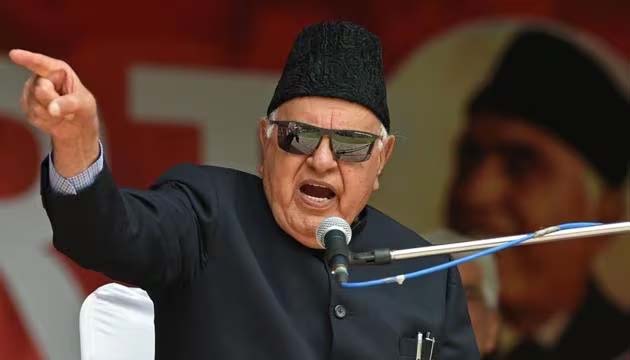Amidst the imminent parliamentary elections, the political factions within the Kashmir valley are priming themselves for the impending showdown. They are diligently convening to nominate formidable contenders poised to secure entry into the parliament, thus laying the groundwork for the forthcoming assembly elections, likely to transpire later this year.
The Srinagar parliamentary constituency, boasting approximately 18 lakh eligible voters, has undergone a contentious redrawing of boundaries following the disputed delimitation exercise of 2023. Presently, its expanse spans from the districts of Shopian to Ganderbal, encompassing a total of 18 assembly segments. These segments comprise Hazratbal, Khanyar, Habbakadal, Lal Chowk, Chanapora, Zadibal, Eidgah, and Central Shalteng within Srinagar district; Pampore, Tral, Pulwama, and Rajpora within Pulwama district; Khansahib, Char-i-Sharief, and Chadoora within Budgam district; Ganderbal, and Kangan within Ganderbal district; with a solitary seat allocated for Shopian district.
Historically, the Srinagar seat has predominantly been held by the National Conference until the 2014 elections, when the Peoples Democratic Party’s stalwart, Tariq Hameed Karra, clinched victory, ending the reign of the NC’s three-time chief minister, Farooq Abdullah. Following Karra’s resignation from the PDP and the seat in 2017, he now serves as a member of the Congress working committee. Farooq Abdullah, representing the constituency in parliament on five occasions between 1980 and 2019, was succeeded by his son, Omar Abdullah, a former chief minister, who briefly occupied the seat in 1999 while serving as the Minister of State in the Ministry of External Affairs under the BJP government led by Atal Bihari Vajpayee.
In the wake of Article 370’s abrogation, the electoral landscape in the Kashmir valley has undergone a seismic shift, transitioning from a duopoly to a multi-faceted political spectrum. The contentious delimitation exercise has not only redefined territorial boundaries but has also reshaped the demographic composition of electoral constituencies, posing a formidable challenge for political entities in candidate selection.
The impending electoral skirmish is poised to be primarily contested between the Peoples Democratic Party (PDP) and the National Conference (NC), both integral members of the INDIA bloc. However, the NC’s decision to refrain from supporting the PDP in the Anantnag-Rajouri seat has sowed discord within the Kashmir alliance, creating a schism between the two parties.
Insiders within the NC reveal that the party’s parliamentary board is advocating for Vice President Omar Abdullah to vie for the Srinagar seat, as Farooq Abdullah is unlikely to contest the upcoming elections. Meanwhile, sources within the PDP divulge that there is considerable pressure on Mehbooba Mufti to challenge Omar Abdullah. Nonetheless, a faction within the party is advocating for the candidacy of youth leader Waheed Para against Omar Abdullah for the Srinagar LS seat. It is rumored that Waheed is disinclined to contest, citing personal reasons. Should both Mehbooba and Waheed opt out of the race, PDP may contemplate fielding Mehboob Beg as an alternative candidate.
The NC’s electoral strategy hinges heavily on Srinagar, considering it their bastion, given Farooq Abdullah’s five-time electoral triumphs in the Lok Sabha elections. Both Abdullahs have also enjoyed success as MLAs and ascended to the position of chief minister with substantial backing from Srinagar.
Following the delimitation, traditional PDP strongholds in Pulwama and Shopian have been integrated into the Srinagar constituency, setting the stage for a riveting electoral showdown between the PDP and the NC. PDP leadership asserts significant support in Ganderbal and Kangan, with plans to court Ishfaq Jabbar in Ganderbal and Hakim Yaseen in the Khan Sahib segment of Budgam.
A senior NC functionary contends that the party maintains a formidable advantage in the Srinagar seat over the PDP. He argues that the PDP’s influence has waned following the exodus of its former legislators to form the Apni Party. Notably, Pulwama and Shopian, erstwhile PDP strongholds, witnessed defections from the party post the abrogation of Article 370 on August 5, 2018. In Srinagar, with the exception of Asiea Naqash, all former PDP legislators have aligned themselves with the Apni Party. In the 2008 and 2014 elections, PDP secured five seats out of eight in Srinagar district, including victories over prominent NC figures such as Ali Mohammad Sagar, Irfan Shah, Syed Afaq, Omar Abdullah, Abdul Rahim Rather, and Ali Mohammad Dar.
The Ganderbal seat, previously held by the PDP in 2002 when Qazi Afzal defeated Omar Abdullah, remains a stronghold for NC leader Mian Altaf since the 90s, succeeding his father Mian Bashir. PDP’s Bashir Mir garnered substantial support in Kangan during the 2014 polls, accumulating over 20,000 votes.
PDP proponents remain optimistic, drawing from historical electoral data and the steadfast loyalty of their cadre. They assert their capacity to outmaneuver the NC in Srinagar.
Critics of the PDP contend that the defection of four former legislators to the Apni Party has resulted in the exodus of party workers and senior activists, potentially eroding PDP’s electoral base. The emergence of the Apni Party, spearheaded by former minister and Sonwar MLA Ashraf Mir, poses a formidable challenge to traditional political entities in the region. Additionally, Sajad Lone’s party has hinted at supporting any contender capable of thwarting the perceived adversary – the NC.









